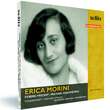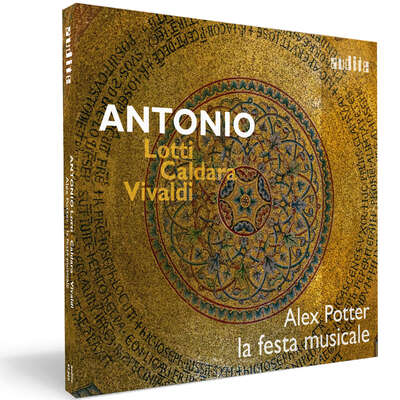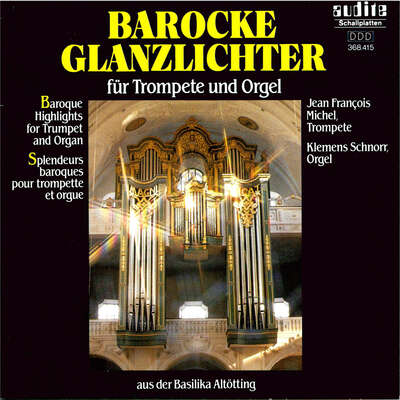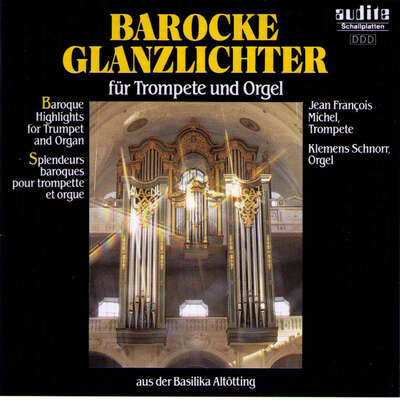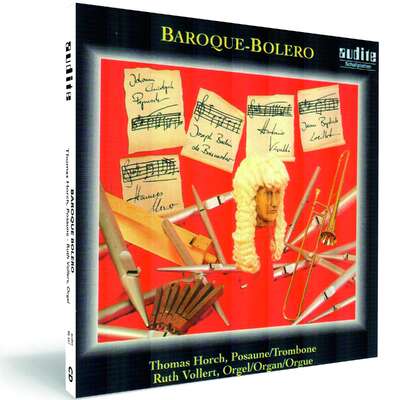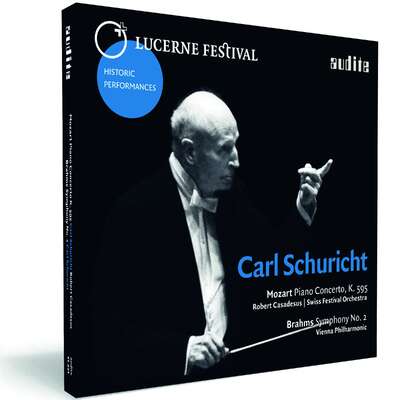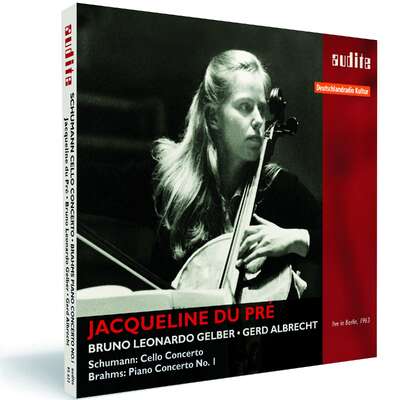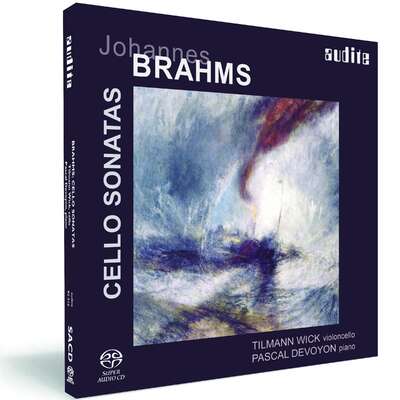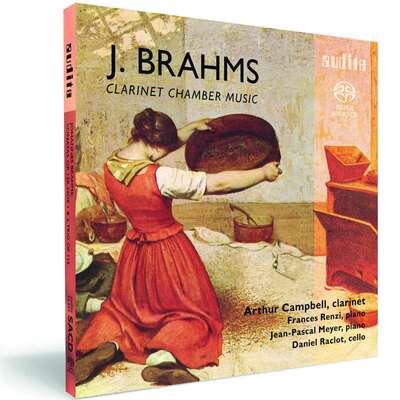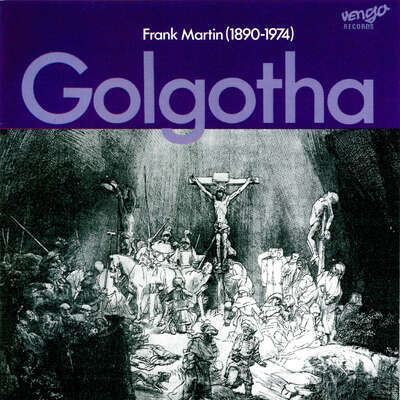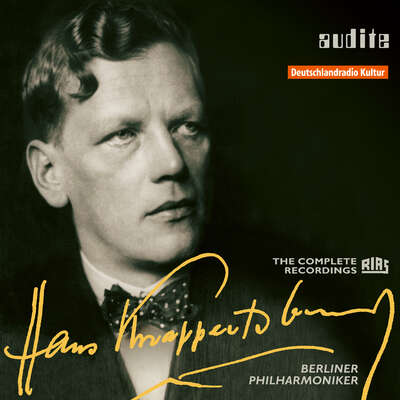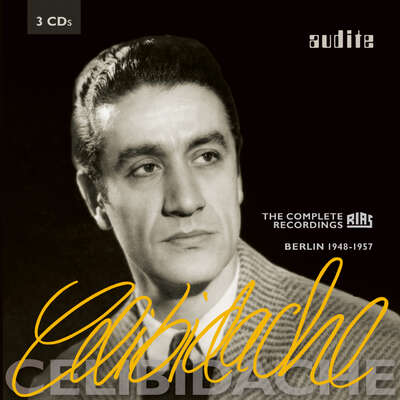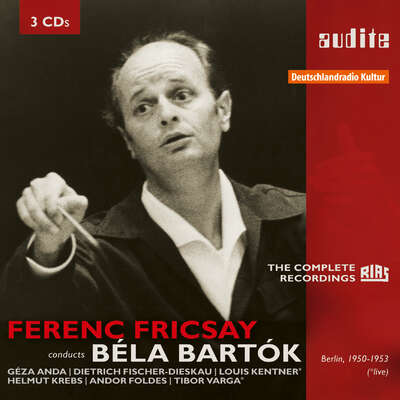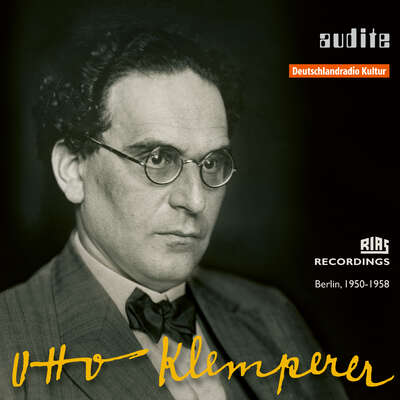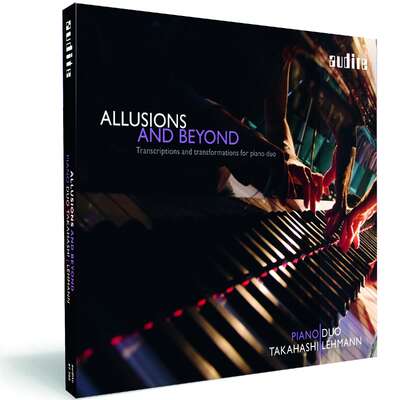
Erica Morini gehörte zu den großen Geigerinnen des 20. Jahrhunderts. Eines ihrer Bravourstücke war das Violinkonzert von Tschaikowsky, hier zu hören in einem aufregenden Live-Mitschnitt von 1952 mit dem RIAS-Symphonie-Orchester Berlin und Ferenc Fricsay. Morini war musikalisch vielseitig, sie beherrschte auch das Genre der Virtuosenstücke und der Barocksonate, wie die RIAS-Aufnahmen mit Michael Raucheisen eindrucksvoll zeigen.mehr
"It’s an incredibly exciting performance, very well recorded [and] excellently remastered by Audite." (ClassicsToday.com)
Details
| Erica Morini plays Tchaikovsky, Tartini, Vivaldi, Kreisler, Brahms and Wieniawski | |
| Artikelnummer: | 95.606 |
|---|---|
| EAN-Code: | 4022143956064 |
| Preisgruppe: | BCB |
| Veröffentlichungsdatum: | 1. Dezember 2010 |
| Spielzeit: | 72 min. |
Zusatzmaterial
-
Producer's Comment
unmittelbare Eindrücke des Produzenten Ludger Böckenhoff
- RIAS-Interview mit Erica Morini, Berlin 1952
Informationen
Die aus Wien stammende und dort ausgebildete Erica Morini (1905 - 1995) schaffte als eine der ersten Geigerinnen der ersten Hälfte des 20. Jahrhunderts den Sprung in die internationale Karriere.
Das war nicht selbstverständlich zu einer Zeit, als die Konzertpodien von männlichen Solisten beherrscht wurden. Morini begann als „Wunderkind", nach sensationellen Debüts mit dem Gewandhausorchester Leipzig und den Berliner Philharmonikern unter Arthur Nikisch trat sie 1921 erstmals in der New Yorker Carnegie Hall auf. Morini, die jüdischer Herkunft war, emigrierte Ende der 30er Jahren nach Amerika und baute ihre Karriere von dort weiter aus. Mehr als fünf Jahrzehnte dauerte ihre künstlerische Laufbahn, kommerzielle Schallplatten entstanden in dieser Zeit nur wenige. Morini überzeugt besonders in Live-Aufnahmen, so auch in diesem Mitschnitt des Tschaikowsky-Violinkonzerts von 1952 mit dem RIAS-Symphonie-Orchester Berlin unter der Leitung von Ferenc Fricsay. Exemplarisch wird hier deutlich, über welches enorme geigerische Können Morini verfügte und warum manche in ihr die größte Geigerin des 20. Jahrhunderts sahen. Wie souverän sie auch das Genre der Virtuosenstücke und der Barocksonate beherrschte, zeigen eindrucksvoll die RIAS-Aufnahmen mit Michael Raucheisen.
Zur Produktion gibt es unter http://www.audite.de/de/download/file/301/pdf einen „Producer's Comment" vom Produzenten Ludger Böckenhoff.
Die Produktion ist Teil unserer Reihe „Legendary Recordings" und tragt das Qualitätsmerkmal „1st Master Release". Dieser Begriff steht für die außerordentliche Qualität der Archivproduktionen bei audite. Denn allen historischen audite-Veröffentlichungen liegen ausnahmslos die Originalbänder aus den Rundfunkarchiven zugrunde. In der Regel sind dies die ursprünglichen Analogbänder, die mit ihrer Bandgeschwindigkeit von bis zu 76 cm/Sek. auch nach heutigen Maßstäben erstaunlich hohe Qualität erreichen. Das Remastering - fachlich kompetent und sensibel angewandt - legt zudem bislang verborgene Details der Interpretationen frei. So ergibt sich ein Klangbild von überlegener Qualität. CD-Veröffentlichungen, denen private Mitschnitte von Rundfunksendungen zugrunde liegen, sind damit nicht zu vergleichen.
Besprechungen
Fidelity | 18. Februar 2016 | Michael Vrzal | 18. Februar 2016 | Quelle: https://www.fide...
[...] ein besseres Gefühl für die physische und musikantische Auseinandersetzung einer Interpretin mit einem fordernden Werk dürfte kaum zu finden sein. Mehr lesen
ensuite Kulturmagazin | Nr. 137 Mai 2014 | François Lilienfeld | 1. Mai 2014 Endlich wieder zu hören: Erica Morini und Bronislaw Gimpel
Ihr Ton ist unglaublich expressiv, die Bogenführung ermöglicht unzählige Varianten in der Klangfarbe, aber auch in der Phrasierung: Sie beherrscht schier endlose Legatobögen, spielt andererseits Staccati und Spiccati gestochen scharf. Sie scheut sich nicht, in ihrer Suche nach intensivem Ausdruck manchmal auf dem «hohen Seil» zu spielen.Mehr lesen
www.ClassicsToday.com | 04.02.2014 | David Hurwitz | 4. Februar 2014 Historical Gems: Morini’s Tchaikovsky, Really, Really Live
It’s an incredibly exciting performance, very well recorded [and] excellently remastered by Audite.Mehr lesen
Gramophone | March 2012 | 1. März 2012
Erica Morini
Tchaikovsky's Violin Concerto
Morini, Austrian-born but naturalised American, played under Nikisch at the age of 14. Her view of the Tchaikovsky Concerto combines brilliance withMehr lesen
Musica | dicembre 2011 - gennaio 2012 | Stefano Pagliantini | 1. Dezember 2011
Considerata una delle maggiori violiniste del ventesimo secolo, al pariMehr lesen
Strings Magazine | September 2011 | Edith Eisler | 1. September 2011 Erica Morini plays Tchaikovsky, Tartini, Vivaldi, Kreisler, Brahms, and Wieniawski
Born in Vienna in 1904, Erica Morini started her career as a spectacular child violin prodigy. At the age of eight, she became the Vienna MusicMehr lesen
As her playing on this live 1952 recording shows, Morini's tone was singularly beautiful: pure and silken, with a focused vibrato, variable in color and intensity, and unfailingly expressive. Her technique was effortless and brilliant, her intonation impeccable—she never let her facility run away with her. An eloquent musician and distinctive personality, she combined a fiery temperament with sophistication, earthy robustness with tenderness and delicacy. The Tchaikovsky is lush, with many juicy slides, and very free: big tempo changes underline shifts of mood and character. Here, the orchestral sound is raucous and loud, and even Morini’s own is scratchy sometimes. Stylistically a child of her time, she makes the Baroque works equally romantic, but gives the virtuoso pieces irresistible charm.
Unfortunately, she made few records, which may explain why she is not as well known as she deserves. But these recordings showcase her many gifts.
France Musique | jeudi 9 juin 2011 | Marc Dumont | 9. Juni 2011 BROADCAST Grands compositeurs
Sendebeleg siehe PDF!Mehr lesen
Fanfare | Issue 34:5 (May/June 2011) | Robert Maxham | 1. Mai 2011
Audite’s release devoted to violinist Erica Morini falls into two parts: a live performance of Tchaikovsky’s concerto from October 13, 1952, andMehr lesen
Morini recorded Giuseppe Tartini’s “other” G-Minor Sonata, “Didone abbandonata,” in a collection that included works by Vivaldi, Pergolesi, and Nardini, with Leon Pommers, and I remember acquiring that LP (Decca DL 10102) now almost two generations ago and finding the performance somewhat chunky and stolid. This one seems more gracious and suave. Those familiar with Isaac Stern’s master class in China in his award-winning documentary should remember his insistence that the young student sing the first movement (literally). Morini doesn’t sing it with the kind of expressivity that Stern suggested, but as in the third movement, not always interpolated nowadays, her reading is expressive in its own way—and at a tempo that seems slow but not quite languishing. The second movement’s technical passages sparkle as brightly as so many diamonds; still, the recorded sound in these studio recordings seems a bit tubby. She makes the finale sound as cheerful despite its minor key as do any of the sunny minor-key movements in violin concertos by Giovanni Battista Viotti. For some, her combination of wistfulness and brilliance in Tartini will sound altogether too romantic; for those who don’t adhere rigidly to any performance-practice dogmas, it will seem a sensitive updating, effectively translating many of Tartini’s idiosyncratic expressions into modern dialects.
Ottorino Respighi’s popular reworking of Antonio Vivaldi’s sonata already contains within it the seeds of tension between the Baroque and the era in which Respighi transcribed it, so it should be no surprise if Morini’s performance sounds somewhat ambivalent as well. But the same characteristics nevertheless prevail—an incisive technical approach married to a bold yet lyrical expressivity. Morini also recorded this sonata later, included in Decca’s collection with Leon Pommers.
The end of the program consists of what might nowadays be considered “mere” encore pieces. Kreisler’s celebrated pastiche of Tartini’s celebrated variations on Corelli’s celebrated gavotte from his L’arte del arco, a favorite with almost every eminent violinist since Kreisler’s time, makes a strong appeal in this elegant performance (an early video of David Oistrakh playing it doesn’t suggest either such effortlessness or such sparkle). DOREMI also reissued this performance, along with the Tchaikovsky concerto conducted by Stravinsky, in its second Morini volume. In Kreisler’s own Schön Rosmarin, Morini turns in an even more elegant, more sparkling performance that catapults her to a place among the very most convincing exponents of that violinist’s composition, while her by turns sultry and skittish reading of the famous Caprice viennois cements her in that place. (Her capriciousness in the middle section recalls Kreisler’s own; not every successful Kreisler re-creator resembles him so much here.) Her reading of Brahms’s waltz may provide one of the most pleasant surprises of the collection for listeners largely unfamiliar with the panache with which violinists of her generation could dispatch such simple items. Wieniawski’s Capriccio-Valse isn’t so simple, though it may be simply a barn burner. Many violinists could play it with equal technical command, but how can you compare her silken sound and the subtly nuanced coddling of phrases tailor-made for such an approach to theirs?
Because of the slenderness of Morini’s output, these recordings should appeal to every collector of violin music and to every admirer of the best violinists of the 20th century, now sadly receding into the past. Nathan Milstein supposedly would play only with Morini in his later years. It’s easy to see why. Inspiring, and urgently recommended.
Diapason | N° 591 Mai 2011 | Jean-Michel Molkhou | 1. Mai 2011 Erica Morini
Adulée jusqu' à sa retraite en 1976 puis injustement oubliée, Erica Morini reprend peu à peu sa place au panthéon des violonistes grâce àMehr lesen
On lui connaissait déjà quatre témoignages de l'oeuvre, en studio avec Defauw (1945) puis Rodzinski (1956), en concert avec Stravinsky (1940) et Horenstein (1957). Fricsay lui apporte un élan particulièrement intrépide dans l'Allegro initial, dose tendresse et pathos dans la Canzonetta. Sur son magnifique Stradivarius de 1727 «Le Davidoff», Morini offre une luminosité de timbres et une ampleur dynamique dignes de rivaliser avec les plus prestigieuses versions de l'époque.
Son jeu, formé à l'école de Sevcik (mais également passé par l'enseignement d'Adolf Busch) dégage un parfum «vieille Europe», plein de liberté et de panache, appréciable dans les compléments. Dans deux sonates italiennes, son style rappelle Milstein par la fraîcheur comme par l'élégance; on comprend vite pourquoi le grand violoniste russe l'avait choisie pour enregistrer à ses côtés deux doubles concertos de Bach et de Vivaldi (Emi, 1964). Soutenus par l'excellent Michael Raucheisen, son allégresse et son charme font encore merveille dans trois pièces de Kreisler, tandis que son goût exquis de la fantaisie est un modèle dans le pétillant Capriccio-Valse de Wieniawski. Des trésors d'une excellente qualité sonore à ne manquer sous aucun prétexte.
Gramophone | April 2011 | Rob Cowan | 1. April 2011
Rob Cowan's monthly survey of reissues and archive recordings
Brilliant recollections - Bumper box sets at super-budget price
Brilliant Classics mighn't provide the ultimate in useful documentation – most of their boxed reissues don't carry any at all – but for genuineMehr lesen
Other Brilliant boxes are hardly less enticing, even though much of the material has been out before in one form or another. A 10-disc set of Pianists opens daringly with a June 1978 Schubert concert by Sviatoslav Richter where the first movement of the G major Sonata, D894, stretches to an epic 26'18". Also included are the Sonata in E minor, D566, and the Allegretto in C minor, D915. I loved Nelson Freire's Liszt CD (the First and Second Concertos) with the Dresden Philharmonic under Michel Plasson, playing that is both flexibly phrased and technically brilliant. Emil Gilels is placed mercilessly close to the microphones for a coupling of Beethoven's Fourth and Fifth concertos with the USSR State SO under Kurt Masur (1976) but the performances are hugely authoritative. Géza Anda's 1966 DG recordings of Schumann's Kreisleriana and Davidsbündlertänze capture playing that is both deft and fanciful, and I'm always ready to enjoy Jean-Philippe Collard in Fauré. The rest, although well worth having, has graced the store shelves rather more often – early Brendel recordings of Mozart, Rachmaninov with Lugansky and Grimaud, Liszt Rhapsodies with Pizzaro and Kissin's feted boyhood disc of Chopin concertos. Brilliant's collection of "The Early Recordings" of pianist Christoph Eschenbach (this time including a modest booklet) affords us a useful opportunity to revisit the playing of a major musician whose ear for nuance and ability to sustain even the slowest tempi convincingly (a Hammerklavier Sonata Adagio that runs to 24'16") are at the very least remarkable. These are highly individual readings, but it's a soft-spoken individuality, always at the service of the music. The repertoire covered includes Beethoven's Concertos Nos 5 (under Ozawa) and 3 (under Hans Werner Henze), Henze's own Second Concerto, Schubert's last two sonatas, Schumann's Kinderszenen and Chopin's Preludes Opp 28 and 45 and "No 26".
Another mixed collection, this time of Violinists, includes such desirable couplings as David Oistrakh in the two Shostakovich concertos (under Mravinsky and Rozhdestvensky), Ivry Gitlis's Vox-originated disc of Berg, Hindemith and Stravinsky concertos, Beethoven sonatas Op 24 and Op 30 Nos 1 and 2 with Arthur Grumiaux and Clara Haskil, and a potpourri of pieces played by Gidon Kremer, bizarrely some of it recorded (or transferred) in mono. Other violinists represented include Christian Ferras (Franck and Lekeu sonatas), Viktor Tretyakov (Paganini and Khachaturian concertos), Ulf Hoelscher (Saint-Saëns), Salvatore Accardo (Elgar and Walton concertos under Richard Hickox) and Shlomo Mintz (Lalo, Vieuxtemps and Saint-Saëns).
However, my prize violin issue for the month is without question Audite's single CD of 1952 "live" Berlin recordings by the Sevcik-pupil Erica Morini who, when she made her debut under Nikisch in Berlin in 1917 (she was just 13), was immediately hailed among the best violinists of her generation. Morini's Westminster recording of the Tchaikovsky Concerto under Rodzinski (RPO) is pretty impressive but this 1951 version with the RIAS Symphony Orchestra under a highly volatile Ferenc Fricsay is even better, Morini's swagger, dashing spiccato and sensitive quiet playing reminding me at times of the great Bronisław Huberman, especially in the (truncated) finale. Occasionally one senses that Fricsay wants to push the tempo even harder but the effect is never uncomfortable. If Morini's Tchaikovsky reflects the influence of Huberman, her Vivaldi (Sonata Op 2 No 11) and Tartini (Corelli Variations) often recall the playing of Adolf Busch, especially in the way she draws out and colours the musical line. A characterful quartet of encores (all the duet pieces are with pianist Michael Raucheisen) includes a wonderful performance of Wieniawski's delightful Capriccio-Waltz, much beloved of Huberman and Heifetz, and where Morini displays some impressive staccato bowing. This is an altogether exceptional CD and the mono sound quality throughout is more than acceptable.
Pizzicato | N° 212 - 4/2011 | Alain Steffen | 1. April 2011 Erica Morini, die Vergessene
Kaum einer kennt heute noch die Violinistin Erica Morini, die sicherlich eine der ersten Sologeigerinnen der Geschichte war. Sie debütierte 1917 imMehr lesen
Atemberaubend ist das hier vorliegende, live aufgenommene Violinkonzert von Piotr Tchaikovsky, durch das sie wie eine Furie hindurch fegt und den romantischen Staub kräftig aufwirbelt. Morinis Interpretation ist dabei so gewagt und neu wie vor dreißig Jahren die revolutionären Konzerte und Aufnahmen eines Harnoncourt. Dass bei dem flotten Tempo – Morini braucht gerade einmal 31 Minuten für dieses Konzert – auch mal was danebengeht, ist nicht schlimm, denn die Spontaneität, die atemberaubende Schnelligkeit und die Flexibilität sind mehr als beeindruckend. Ferenc Fricsay ist ebenfalls in seinem Element und fordert von seinem Orchester eine enorme Reaktionsschnelligkeit, die, wie das Spiel der Solistin, manchmal gefährliche Klippen streift. Aber egal, welch ein musikalisches Erlebnis! Zusammen mit Michael Raucheisen hat Erica Morini ebenfalls Werke von Tartini (Violinsonate RV 10), Kreisler, Brahms (Walzer op. 39/15) und Wieniawski (Capriccio-Walzer op. 7) eingespielt, die interpretatorisch ebenfalls sehr interessant sind, zeigen sie doch eine Violinistin, die ihrer Zeit weit voraus war und die Musik als etwas Lebendiges betrachtete, für das man auch einmal spieltechnische Risiken auf sich nehmen konnte.
Diverdi Magazin | marzo 2011 | Roberto Andrade | 1. März 2011
Nacida en la Viena imperial
Audite dedica un CD monográfico a la gran violinista Erica Morini
En la actualidad, el panorama del violín registra una abundancia de nombres femeninos: Mullova, Mutter, Julia Fischer, Arabella Steinbacher, LisaMehr lesen
Morini grabó música de cámara con los pianistas Firkusny y Raucheisen, y varios de los grandes conciertos del repertorio con Rodzinski para Westminster y para DG con Fricsay. Este mismo maestro es quien colabora con ella en el de Tchaikovski, que Morini aborda con seguridad y solvencia y en el que luce su musicalidad y su bello sonido, especialmente durante la Canzonetta, una vez pasadas las tremendas dificultades del allegro inicial – que parece patrimonio de los rusos más grandes, como Oistraj y Kogan joven – que someten a palpable tensión a Morini. El final, en el que Fricsay practica un breve corte sin gran importancia, tiene también alto nivel musical, no en vano la colaboración del maestro húngaro al frente de la orquesta RlAS es de primer orden. El célebre Michael Raucheisen acompaña al piano el resto del programa que incluye una sonata de Tartini (Didone abbandonata) y la RV 1O de Vivaldi que, cuestiones historicistas aparte, se escuchan con agrado, porque Morini las toca con perfecta afinación, excelente línea musical y buen gusto. Siguen las Variaciones de Tartini sobre un tema de Corelli en el arreglo de Fritz Kreisler, y dos piezas originals de éste, Schön Rosmarin y el Capricho Vienés, en las que la artista muestra total familiaridad con el estilo de una música que escuchó desde niña y de las que brinda unas versiones deliciosas, de fraseo flexible y elegante y luminosa sonoridad. Otras dos miniaturas, el conocido Vals de Brahms, opus 39 número 15 y el virtuosista Capricho-Vals de Wieniawsky opus 7 ratifican el dominio de Morini en la pequeña forma, especialidad no fácilmente accesible a todos los violinistas y que ella pudo aprender de sus maestros, Kreisler incluido, cuyos maravillosos conciertos debió de disfrutar en más de una ocasión. Un merecido homenaje a una destacada artista. Buen sonido y excelentes comentarios de carpeta a cargo de Norbert Hornig.
American Record Guide | 01.03.2011 | Joseph Magil | 1. März 2011
...These recordings were remastered from the original master tapes, so the sound is good for its time...<br /> <br /> To read the complete review, please visitMehr lesen
To read the complete review, please visit American Record Guide online.
To read the complete review, please visit
theartsdesk.com
| Saturday, 26 February 2011 | Graham Rickson | 26. Februar 2011
Tchaikovsky: Violin Concerto (plus works by Tartini, Kreisler, Brahms, Vivaldi and Wieniawski)
Erica Morini (violin), RIAS-Symphonie-Orchester, Ferenc Fricsay (recorded 1952) (Audite)
Described by one commentator as “probably the greatest woman violinist who ever lived”, Erica Morini (1905-1995) responded curtly by saying, “AMehr lesen
The violin and piano couplings are fun; Respighi’s anachronistic arrangement of a Vivaldi sonata swoons and smoulders inauthentically, and miniatures by Brahms, Kreisler and Wieniawski sparkle. As mentioned, the excellent recorded sound needs no apologies and the notes are fascinating.
Fono Forum | Februar 2011 | Michael Kube | 1. Februar 2011 Überragend frisch
Noch immer gilt selbst unter Kennern die in Wien geborene Geigerin Erica Morini (1905-1955) als Geheimtipp. Dass sie es trotz eines glänzendenMehr lesen
Dabei hätte die einstige Schülerin von Sevcik, Grün, Rosa Hochmann-Rosenfeld, Alma Rosé und Adolf Busch einen weit prominenteren Platz verdient. Die alte Einschränkung von Carl Flesch, die urmusikalische Künstlerin würde bei aller technischen Souveränität eben doch ein wenig "antiquiert" geigen, geht heute allerdings ins Leere: Denn gerade ihr geschmeidiger Bogenstrich, die Vertiefung in die Musik selbst und der hörbare Verzicht auf rein äußerliche Brillanz lassen aufhorchen – zu gerne würde man ein Spohr-Konzert von ihr hören, die sie angeblich noch alle im Repertoire hatte! Und so klingt denn auch Tschaikowskys Violinkonzert im Live-Mitschnitt aus dem Berliner Titania-Palast vom 13. Oktober 1952 ungemein frisch und luftig, ohne aufgesetzte Bedeutungsschwere. Das liegt auch an Erica Morinis unmittelbarer Risikobereitschaft, selbst vor dem Mikrofon. Zudem präsentiert sich das RIAS-Orchester unter Ferenc Fricsay in Höchstform. Die nur zwei Tage später im Studio aufgenommenen Sonaten, Walzer und Capricen sind eine schöne Zugabe, auch wenn Michael Raucheisen das forsche Tempo nicht immer mitgehen mag. Die Aufnahme klingt in der perfekten Restaurierung angenehm direkt, trocken und erstaunlich präzise.
thewholenote.com | February 2011 | Bruce Surtees | 1. Februar 2011 Old wine in new bottles – Fine old recordings
Erica Morini was not merely one of the greatest female violinists but oneMehr lesen
Frankfurter Allgemeine Zeitung | Nr. 12 (15. Januar 2011) | Jan Brachmann | 15. Januar 2011
Gedenkblatt für Erica Morini
Verwischte Existenz
Weich gezeichnet sind die Züge der brünetten Frau mit dem weißemMehr lesen
The Strad | January 2011 | Tully Potter | 1. Januar 2011
Here is a portrait of the marvellous Erica Morini (1904-95) as she was inMehr lesen
La Musica | 2011 January | 1. Januar 2011 Erica Morini
koreanische Rezension siehe PDFMehr lesen
auditorium | January 2011 | 1. Januar 2011 Erica Morini
koreanische Rezension siehe PDFMehr lesen
andante | 2011 January | 1. Januar 2011 Erica Morini
koreanische Rezension siehe PDFMehr lesen
Bayern 4 Klassik - CD-Tipp | Dienstag, 30. November 2010 | Fridemann Leipold | 30. November 2010 Erica Morini Violinvirtuosin alter Schule
Diese hervorragend restaurierten Tondokumente rufen die Erinnerung an eine Violinvirtuosin alter Schule wach, deren Nachruhm bedauerlicherweise hinterMehr lesen
Allenfalls die Tatsche, dass der hochbetagten Morini während des letzten Krankenhausaufenthalts ihre kostbare Stradivari aus ihrem New Yorker Appartement gestohlen wurde, mit der sie nach ihrem Tod eigentlich jüdische Wohltätigkeitsorganisationen hatte unterstützen wollen, überlebte als tragische Anekdote.
Vom Wunderkind zur ernsthaften Musikerin
Erica Morini, die aus einer jüdischen Wiener Musikerfamilie stammte, schaffte den Sprung vom Wunderkind-Status zur ernsthaften Musiker-Karriere - dank ihrer soliden Ausbildung unter anderem bei dem berühmten böhmischen Pädagogen Otakar Ševcík (dessen Violinschule heute noch in Gebrauch ist). Nach dem nationalsozialistischen "Anschluss" Österreichs verließ Erica Morini ihre Heimat, emigrierte in die USA und wurde amerikanische Staatsbürgerin. Bis ins hohe Alter konzertierte sie weltweit mit Dirigenten wie Arthur Nikisch, Serge Koussewitzky, Wilhelm Furtwängler oder Bruno Walter. Dennoch schätzte sie ihre Position im damaligen Musikbetrieb ganz realistisch ein: "Ein Geiger ist ein Geiger, und als solcher bin ich zu beurteilen - nicht als weibliche Musikerin." Um am Ende ernüchtert zu resümieren: "Niemand will Geigerinnen."
Phänomenales Geigenspiel
Von Erica Morinis phänomenalem Geigenspiel, zumal unter Live-Bedingungen, zeugt der hier erstmals veröffentlichte Konzertmitschnitt von 1952 aus dem Berliner Titania-Palast. Damals musizierte sie eines ihrer Paradestücke, das furiose Tschaikowsky-Konzert, mit eigenwilliger Phrasierung und wunderbar ausgeglichener Tongebung, mit feinen Lyrismen und völlig unsentimentaler Attacke. Die zeittypischen Portamenti bewegen sich hier sehr im Rahmen, allenfalls manche Rubati wirken heute etwas antiquiert. Morinis Tschaikowsky-Interpretation ist jederzeit klar gefasst, ufert nie exzentrisch aus, hat Zug und Charme. Das RIAS-Symphonie-Orchester unter seinem damaligen Chefdirigenten Ferenc Fricsay steuert markante Kontur und schöne Holzbläser-Soli bei.
Niemand spielt Kreisler wie Morini
Wie anrührend Barockmusik (meist in romantisierenden Bearbeitungen) seinerzeit klingen konnte, belegen die beigegebenen Studio-Produktionen, ebenfalls von 1952, aus den Archiven des RIAS Berlin. Tartini oder Vivaldi changieren bei Erica Morini und ihrem bewährten Klavierpartner Michael Raucheisen zwischen innig ausgesungenem und hymnisch grandiosem Tonfall. Ihre stupende Bogentechnik kann man vor allem in den Gustostücken von Fritz Kreisler bewundern - schließlich lobte der Meister selbst: "Niemand spielt Kreisler wie Morini."
